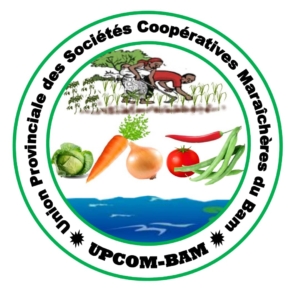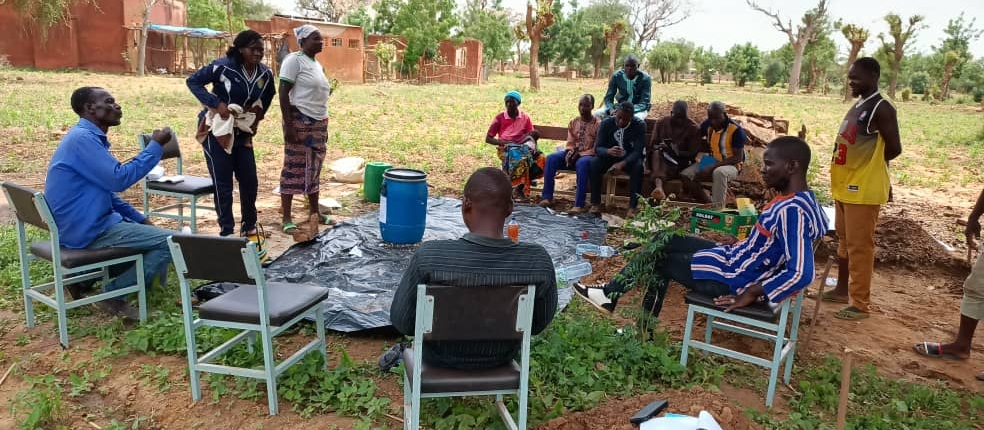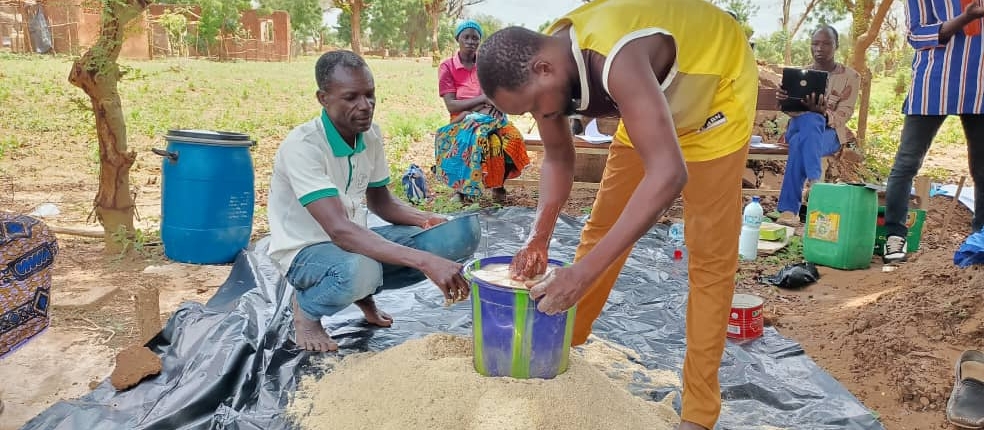For about ten years, Burkina Faso has been experiencing a humanitarian and security crisis, leading to massive population displacements. As of January 2024, the number of people forcibly displaced to areas less affected by the crisis within the country was estimated at over 2 million. This situation affects the entire country but particularly impacts rural areas, which are more vulnerable to terrorist attacks. Agricultural regions, especially the Bam province located in the North-Central area, are heavily impacted.
The Provincial Union of Market Gardening Cooperative Societies of Bam (UPCOM-Bam), created in 2005 to improve the profitability of fruit and vegetable sectors, currently brings together 13 cooperatives, representing 300 farmers. The security context in Burkina Faso has significantly slowed the union’s activities in recent years. However, the farmers continue to support each other and mobilize to sustain and develop their production.
The UPCOM-Bam coordinator explains: “The relay farmers or endogenous facilitators provide substantial support to producers and serve as intermediaries for the union’s technicians. In insecure areas, they play the role of technicians by conducting follow-ups, offering close support and advice, and sharing training sessions with the producers.”
On October 25, in Tanghin Dassouri (a suburb of Ouagadougou), 12 relay farmers from UPCOM-Bam attended the second training session on soil fertility. This session focused specifically on the benefits of fertilizing plants such as mucuna, cajanus, and crotalaria. Several relay farmers from partner producer organizations associated with Fert, located in the Central region, shared their experiences during the session.
Cécile, a relay farmer from Tanghin Dassouri, has enclosed her amaranth plot with cajanus (pigeon peas). This initiative offers her numerous benefits:
- Protection for her crop against wind and sun.
- Soil quality improvement, as the leaves can be used as mulch or in compost production.
- Feed for her goats, utilizing some of the leaves and branches as forage, while the harvested seeds are used for family consumption.
The farmer first tried this approach in 2023, followed by new plantings in 2024. She plans to enclose additional plots using this method next year.
The training of relay farmers emphasizes experience sharing, field visits, and the use of illustrated teaching tools. This approach enables the trained PRs to return to their localities and train producers in their villages. This system is particularly crucial for producers in a security context where traveling between localities can often be challenging.
If there were no relay farmers, we would not be able to benefit from the training sessions, as the technicians are not yet authorized to come to our village. The members of the cooperative greatly appreciate this approach.
These trainings under the tree are very practical and hands-on. It’s easier for us to see how we can organize this type of training in the villages for a larger number of producers. The techniques proposed to improve soil fertility are easy to implement. Once back on our farms, we will also be able to try them out.





